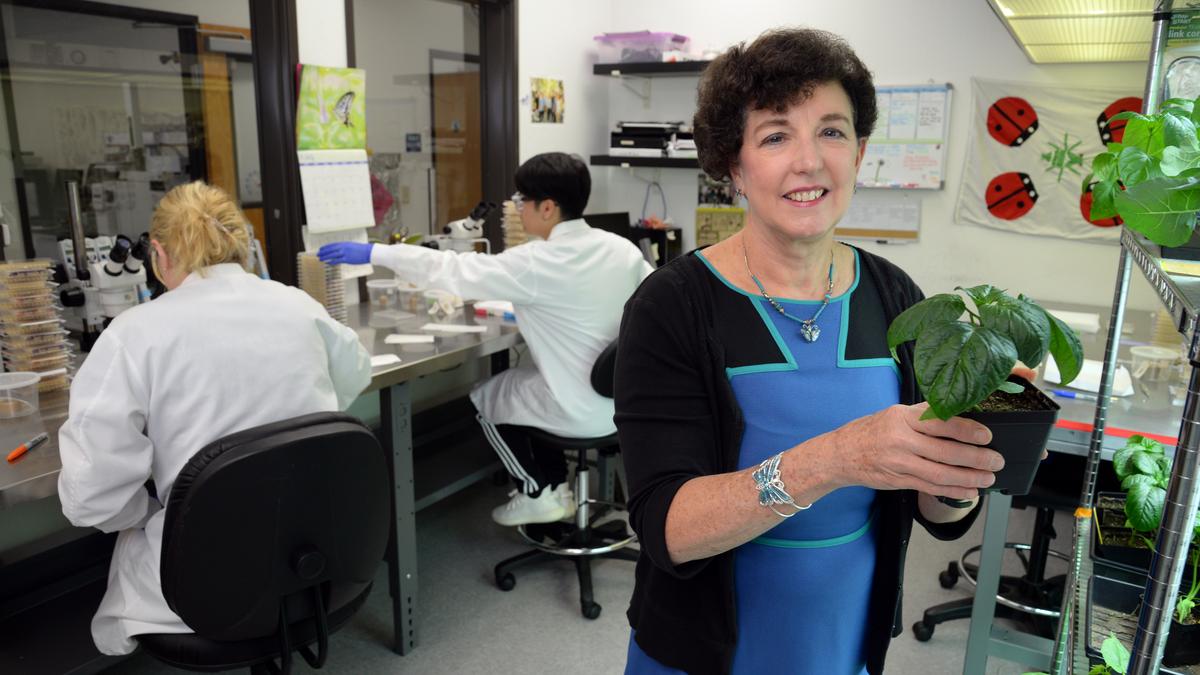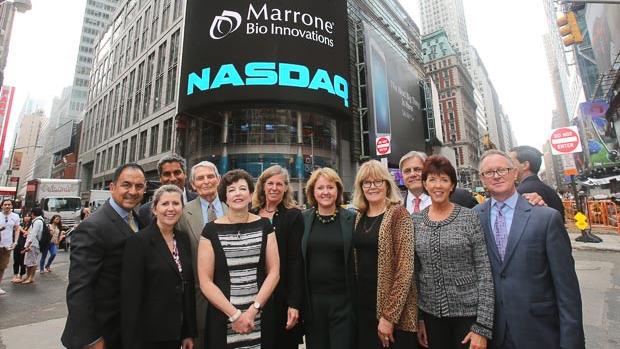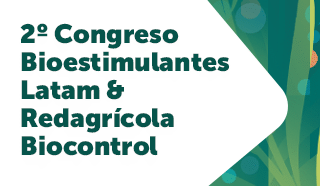01/Apr/2022
#04
SUBSCRIBE TO OUR NEWSLETTER
Suscríbete a nuestro newsletter
Last issue articles
- Biome: the space gaining protagonism in biological strategies for crops
- The export dynamics driving the Mexican biologicals market
- New model developed to evaluate effects of two or more biostimulants combined in a single crop
- Dr. Wagner Bettiol and the biocontrol market in Brazil
- Las propiedades que hacen del Trichoderma un socio clave en la búsqueda de mejores desempeños en los cultivos
- Changes in the new regulation on fertilizers and biostimulants in Chile
- Innovak Global, the expansion of root specialists
Market movers
- Renewable-based nitrogen fertilizer firm raises US$ 20 million in investment round
- Bayer and Ginkgo Bioworks close agreement to strengthen open innovation platform for agricultural biologics
- Argentinean firm Puna Bio: Millions raised to study superbacteria for agricultural use
- Corteva Agriscience signed an agreement to acquire leading biologics company Symborg
- Brazilian study uncovers ants' potential in crop protection
- Huber acquires specialty plant nutrition producer Biolchim
- UPL announces agreement to distribute bioprotector based on orange oil
- ICL and Lavie Bio start strategic collaboration to develop new biostimulants
- Hortitool and Green Smile to organize the Morocco Berry Conference 2022
 Pamela Marrone fundó Marrone Bio en 2006, en Davis, California, sede de algunas de las principales firmas de tecnología biológica para la agricultura en el mundo.
Pamela Marrone fundó Marrone Bio en 2006, en Davis, California, sede de algunas de las principales firmas de tecnología biológica para la agricultura en el mundo.
Marrone Bio's Footprint In Latin America
The Californian firm that agreed to merge with Argentina's Bioceres a few weeks ago has an important growth plan underway in Latin America for its biocontrol solutions, as well as for the nutrient portfolio of its subsidiary Pro Farm.
F. Aldunate M.
"Latin America was and is our main objective for international growth." This is how Rubén Ramos describes Marrone Bio’s vision of this region. As the regional business development director of the Californian firm specialized in agricultural bio-inputs, he says that the goals that his Latin American team have are important for the company. Although for now it generates only 7% of the company's income, “Latin America has been the focus of international growth for our products,” says Ramos, who is of Venezuelan origin but based in Orlando, Florida.
The objectives for Latin America remain the same for now, despite the fact that his company Marrone Bio reached an agreement to be acquired through a share swap by Argentina's Bioceres for an amount close to US$236 million. "What was signed is an intention to merge between the two companies, but until the deal is closed, we will continue to operate as before and continue to serve our clients," says Ramos.
Read the article: Bioceres: A biological march that goes at full speed
His optimistic view of the development of bio-inputs in Latin America is based on a direct comparison with Europe, the other close market for Marrone Bio and where it operates through an alliance with Corteva. "Europe is an important market, but it’s already mature and has a lot of competition," says Ramos. “Latin America, on the other hand, is virgin. It is a growing and changing market because the final consumer is becoming more and more demanding”.
For Marrone Bio, it is important to find sources of growth. The company reported global revenues of US$ 44.3 million in 2021, an increase of 15.5% compared to 2020. However, despite nine years trading in the stock exchange, the company has yet to post a profit. It ended the year with a loss of US$16.6 million, slightly below the US$20.2 million loss of the previous year.
Biologicals without life
However, progress in Latin America has been slower than initially expected. According to Ramos, this is due to the type of technology that is used to make their products, which come into conflict with the regulations of several Latin American countries. Founded in 2006 by the American researcher Pamela Marrone, the firm became known in the market for its biopesticides based on the extraction of metabolites, substances, and proteins from different organisms. The Regalía or Stargus brand of biofungicides, the Grandevo and Venerate bioinsecticides, as well as the Majestene nematicide, are some of the products that they’ve obtained with this formulation technology, and which are mainly used in intensive crops such as fruit orchards and vineyards.

The firm went public on the Nasdaq in 2013, after raising US$ 57 million in capital. But its share price has moved away from its early days: from the US$18 at which it traded in its first year on the stock exchange, the share price today is around US$1.
"When we carry out the process of extracting the compounds or exudates produced by microorganisms, they die," says Ramos. "But for most of the countries in the region, biological products involve living organisms, which implies a discussion and a debate that can take a long time."
In Chile, this was not the case, Ramos points out, as new legislation in the field of biologicals allowed the registration and importation of Grandevo, a product that is being distributed locally by Anasac since 2020. "But since we are working with the microorganism’s chemistry, other countries categorize us as an agrochemical or as a biochemical substance, which complicates the registration process," says Ramos. “And that prevented us from moving forward at the speed that we had hoped for.”
Russian technology
Despite this, the firm’s business in the region received a boost in September 2019, when Marrone Bio acquired the Finnish company Pro Farm Technologies for US$31.8 million, a firm with a catalog of nutrients and biostimulants, as well as organic products for seed and foliar treatment. The Finnish company inherited certain technologies developed in a joint plan by the Russian aerospace agency and NASA to grow crops in zero gravity, but they failed to succeed. The Finnish company had a relevant presence in Latin America, especially with its products for extensive crops, such as soybeans and corn, with presence in Brazil, Argentina, and Paraguay, which were added to the Marrone Bio portfolio.
In fact, Pro Farm's main client in Latin America is Rizobacter, the Argentine company that was acquired by Bioceres in 2015, which uses its seed treatments. "We had a joint project with Rizobacter and if the merger takes place, we will be even closer."
“Nuestra fusión tiene el potencial de acelerar el alcance global, ampliar nuestra oferta de productos y expandir nuestros programas de I+D”
Kevin Helash, the current CEO of Marrone Bio, at the time of the announcement of its integration with Bioceres.
However, the integration between Bioceres and Marrone Bio forms a catalog in which the pieces complement and overlap each other. On the one hand, the products of Marrone Bio’s original area consist mainly of biocontrol solutions for intensive crops, with a focus on countries such as Chile, Peru, Colombia, and Mexico. These are markets and sectors in which Bioceres does not have a major presence. However, Pro Farma's line of nutrients and biostimulants for extensive crops do cross paths with Bioceres-Rizobacter’s vocation. “The similarities between both portfolios generate some concern about what could happen after both companies merge together, although we think that we complement each other, because they are different products, with different approach". As example, he points out that Bioceres-Rizobacter is involved in the inoculation of crops, adjuvants and has been developing a line of biofungicides, but with live organisms. "They have an important presence in Argentina and have expanded into Brazil and the Southern Cone, they are gaining a good position and are even projecting this growth in other areas of Latin America, North America and Europe," says Ramos.
One problem is what may happen to the production of Pro Farm, whose factories are based in Russia, a country with economic and commercial sanctions for its invasion of neighboring Ukraine. "This has given us some problems," says Ramos, who still sticks to his plan. "Our instruction is to continue as planned, and when the merger is finalized, we will see how to continue."
Last issue articles
- Biome: the space gaining protagonism in biological strategies for crops
- The export dynamics driving the Mexican biologicals market
- New model developed to evaluate effects of two or more biostimulants combined in a single crop
- Dr. Wagner Bettiol and the biocontrol market in Brazil
- Las propiedades que hacen del Trichoderma un socio clave en la búsqueda de mejores desempeños en los cultivos
- Changes in the new regulation on fertilizers and biostimulants in Chile
- nnovak Global, la expansión de los especialistas en la raíz
Market movers
- Argentinean firm Puna Bio: Millions raised to study superbacteria for agricultural use
- Corteva Agriscience signed an agreement to acquire leading biologics company Symborg
- Brazilian study uncovers ants' potential in crop protection
- Huber acquires specialty plant nutrition producer Biolchim
- UPL announces agreement to distribute bioprotector based on orange oil
- ICL and Lavie Bio start strategic collaboration to develop new biostimulants
- Hortitool and Green Smile to organize the Morocco Berry Conference 2022
About us
Biologicals Latam es una revista digital de Redagrícola que informa de manera especializada sobre la intensa actividad que se está desarrollando en el espacio de los bioinsumos para la producción agrícola. Esta publicación es complemento del Curso Online de Bioestimulantes y Biocontrol y las conferencias que este grupo de medios realiza en torno al tema.




